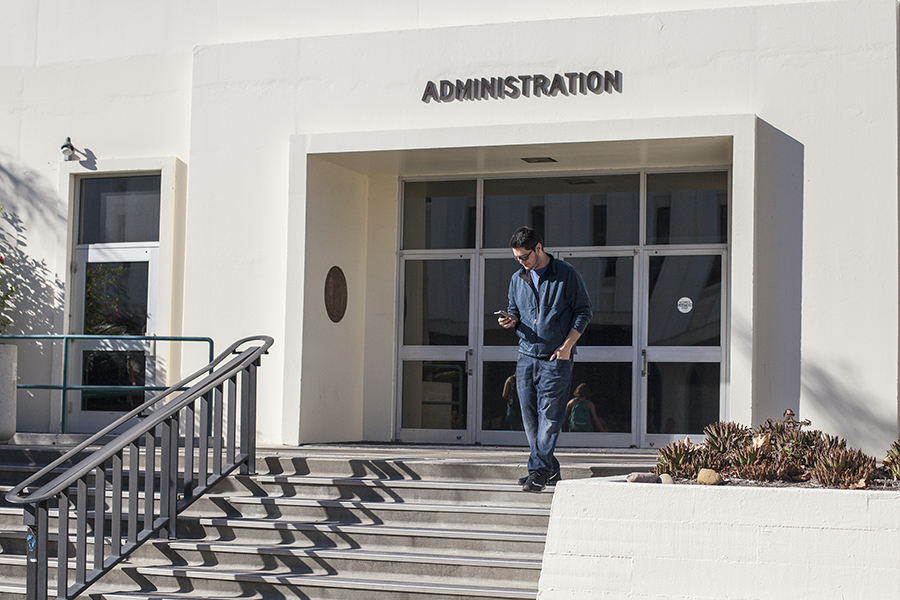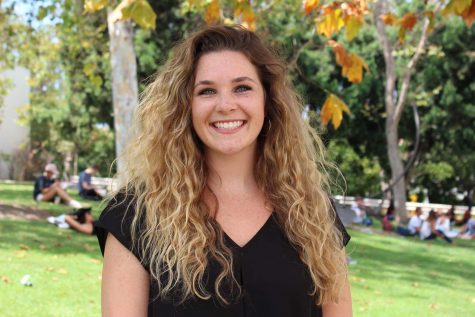Secretary of Education Betsy DeVos announced Sept. 22 her department will scrap sexual assault guidelines for universities previously established under former president Barack Obama in 2011.
The Department of Education rescinded the Obama-era “Dear Colleague” letter on sexual assaults, and will replace the Obama administration’s guidance with new instructions raising the standard of evidence for universities handling complaints.
Under new interim guidelines, schools are no longer required to “use the lowest standard of proof” in sexual assault cases while the Department of Education works to create rules that universities and colleges that receive federal funding will have to follow. The guidelines also state that “a school may not rely on fixed rules or operating assumptions that favor one party over another,” according to the Department of Education.
Title IX was originally signed into law in 1972 as an amendment to the Higher Education Act of 1965 to prohibit any educational program or activity that receives federal funding to allow gender discrimination. During a 1980 appeals court case — Alexander v. Yale — it was determined that sexual harassment “is illegal because it is a form of sex discrimination.”
The “Dear Colleague” letter was issued in 2011 as a way to “remind schools of their responsibilities to take immediate and effective steps to respond to sexual violence,” according to the Department of Education.
Jessica Nare, SDSU women’s resource coordinator, said that the letter expressed “that sexual violence was essentially a part of gender and sex discrimination” because it prevents student survivors from succeeding effectively in the classroom.
“It said that colleges and universities have a duty to address sexual violence through education and prevention, and to support survivors – and that was a really important change in a really big shift in the way that we think about Title IX,” Nare said. “It was very important in providing more direction, more oversight and more support to colleges and universities in their sexual violence prevention work and the support that they were providing to survivors.”
Today, Title IX “protects students, educators and school employees against all forms of sex or gender discrimination, including: sexual harassment, dating and domestic violence, other forms of sexual misconduct, stalking and retaliation,” according to the San Diego State University webpage for Title IX.
Prior to the ‘Dear Colleague’ letter, sexual violence was not considered to be covered by (Title IX), said Jessica Rentto, SDSU’s Title IX Coordinator, via email.
“Universities, including SDSU, handled sexual violence under sexual misconduct policies, rather than (Title IX) policies,” Rentto said. “The ‘Dear Colleague’ letter provided for a more robust process for investigating and handling sexual violence complaints with the Title IX Coordinator overseeing the process to ensure fairness, legal compliance and due process.”
In a speech at George Mason University Sept. 7, DeVos gave a speech excoriating Title IX stipulations and stating that the current system will continued to be enforced but that the Department of Education will “vigorously address all instances where people fall short.”
During her speech, DeVos said that “acts of sexual misconduct are reprehensible, disgusting and unacceptable,” adding that “they are acts of cowardice and personal weakness, often thinly disguised as strength and power.”
In addition to discussing how she believes that the current Title IX fails victims of rape, she said that it does not allow for fair investigation and prosecution for the accused. DeVos said that “one person denied due process is one too many,” referring to students who may have been expelled as a result of being wrongfully accused and convicted of misconduct.
Her speech referenced a case at the University of Southern California, where Matt Boermeester was observed “roughhousing” with his girlfriend Zoe Katz, a tennis player who testified that it was a consensual act. Despite Katz stating in multiple interrogations that she was not being abused, she told the Los Angeles Times that she continued to be falsely pegged as a “battered woman.”
Critics of Title IX investigations on college campuses have stated that they believe there are flaws in the current system. According to some of these critics, campus investigators may not be skilled enough to determine guilt of the accused, there may be biases against men of color and it allows for double jeopardy as accused students can be disciplined by Title IX coordinators then go on to face trial in court off campus.
According to ABC News, DeVos met with several groups earlier this year to evaluate the efficiency of Title IX including “men’s rights group” the National Coalition for Men, Stop Abusive and Violent Environments, Families Advocating for Campus Equality, educational institutions and survivors’ groups.
Proponents of the Title IX stipulations regarding sexual abuse and rape say that it is vital to fostering safe communities on campus, according to FeministCampus.org. Statistics from the Department of Education show that 20 percent of women and 6 percent of men are either victims of or attempted recipients of sexual assault while in college. Nare said that it is more likely than not that a person filing a complaint of sexual assault was actually assaulted.
“I get concerned about the Secretary of the Department of Education’s comments, because I think that sometimes I think they can be construed as victim-blaming or saying that people aren’t telling the truth about sexual violence, and that just isn’t the experience that I have working with survivors,” Nare said. “I really, truly think that lots of people are impacted by this issue and that Title IX is a really important resource that can support them.”
Universities and colleges that receive federal funding are required to have a formal process used to address sexual assault cases. A Washington Post-Kaiser Family Foundation poll found that two-thirds of students who filed sexual assault complaints were satisfied by the way their university — rating it as an A or B — with 8 percent of students feeling dissatisfied with the way their complaint was handled — a rating of D or F.
The Washington Post article states that their poll echoes other studies that say that sexual assault and rape are often underreported, with only 11 percent reporting their encounter to “police or campus authorities,” and only three-fourths of the victims polled told their story to anyone. Rentto said that she feels that the current investigation process for Title IX cases in the California State University system are equitable for those involved.
“CSU/SDSU policies and procedures relating to Title IX investigations provide for an impartial and balanced investigation,” Rentto said via email. “Providing due process for both parties is a paramount consideration and our policy provides for equal treatment for both complainant and respondent/accused to ensure fairness.”












